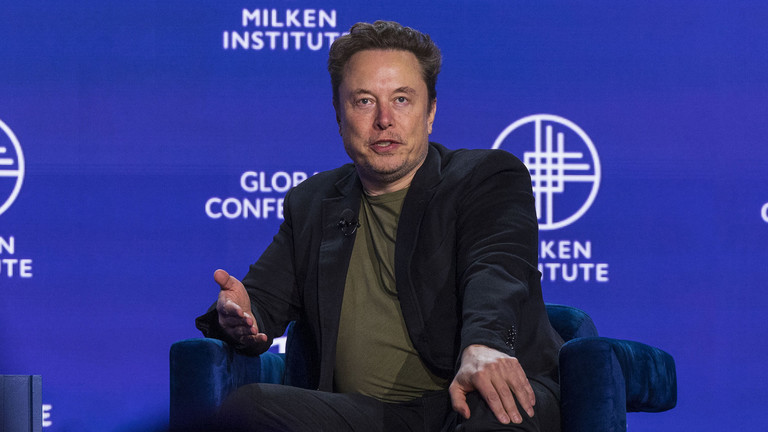Lifestyle
Elon Musk’s Bold Remarks About Jesus Set Social Media Ablaze

Elon Musk’s recent statements on Jesus have caught the world’s attention, leading to widespread reactions. Read on to explore the details of his comments and the ensuing discussions.
Do we truly have Elon Musk, a name that epitomizes innovation and technology, representing a future many can only dream of? Beyond his remarkable accomplishments in space exploration, renewable energy, and electric vehicles lies an intriguing question few are bold enough to pose: What beliefs drive the man aspiring to propel humanity towards Mars?
Prepare to uncover the most personal and unexpected aspects of one of history’s greatest billionaires. Do you pray?
I don’t. Even when I nearly died from malaria, I didn’t pray. Stick with me until the end of this video because you’ll…
Listen to Elon Musk discuss his spiritual life and views on religion, culminating in a powerful moment when he expresses his belief in Jesus Christ as the path to salvation.
The teachings of Jesus hold profound wisdom, and I find myself in agreement with them. Let’s explore this topic further: Can science and religion coexist? Likely not. Do you engage in prayer? Personally, I do not—even during my near-death experience at Valaria, I didn’t pray. Would you say that spirituality plays a role in your life?
Well, it really depends on how you define spirituality. I’m somewhat skeptical about the idea of a higher consciousness that monitors our every action and judges us based on certain criteria to determine our afterlife destination. I find that concept improbable. So, what is it that you revere or hold sacred?
I don’t actually worship anything, but I am dedicated to advancing humanity through technology.
I genuinely believe in the principles of Christianity and think they are excellent. So, how does this align with not being religious?
When I was around 11 or 12 years old, I experienced a bit of an existential crisis as life seemed devoid of meaning. In response, I decided to explore various religious texts in search of answers. Being an avid reader at that age, I ended up reading the Bible and the Quran, among other texts.
Various perspectives exist, but as a 12-year-old exploring the Hindu side of things, it’s challenging to fully grasp these complex ideas. Despite this difficulty, I managed to understand them well enough at ages 11 or 12 for it to trigger an existential crisis. I’m still trying to make sense of it all—does anyone have any answers that might help clarify?
I started delving into philosophy books, reading a lot of Schopenhauer. His work can be quite depressing—something that might affect a child more than an adult—but none of these philosophies offered answers that genuinely resonated with me. You’ve mentioned before aligning yourself with Einstein in the belief in Spinoza’s God, where divinity manifests as the universe itself and reveals through physical laws or “the lawful harmony” around us. I share this view: whether we call it God, the simulator, or another Supreme Being(s), they express themselves through physics; as creators of our existence, it’s up to us to strive for understanding this marvelous creation. What’s your stance on believing in God?
I think there’s a reason behind the existence of this universe, and some might call that reason God. The concept of forgiveness is crucial; it’s essential because without it, pursuing vengeance leads to endless cycles of retribution—reminiscent of the saying that “an eye for an eye leaves everyone blind.” Although I’m not religious, I have found myself on my knees in moments seeking connection with a god or higher power.
READ ALSO: Maduro Accuses Elon Musk of Spending $1 Billion on Coup Attempt
Something must have created the universe, or at least it’s undeniably here. So how did it come into existence? One might call whatever brought the universe into being ‘God’ or possibly ‘gods,’ depending on one’s perspective. I’m not entirely sure myself. Philosophically speaking, I believe that expanding our consciousness can help us answer profound questions like: What is the meaning of life? What truly defines the nature of the universe? And what are even the right questions to ask about these mysteries?
If we can expand our consciousness to include more humans and digital intelligence, we’ll have a greater chance of understanding the meaning of life. I like to think this reflects my philosophy of curiosity about reality’s nature. For instance, I agree with many principles Jesus taught; his teachings hold profound wisdom. Concepts such as turning the other cheek are crucial because adopting forgiveness over revenge prevents everyone from being blinded by vengeance—it highlights the importance of mercy.
Treating others as you would want to be treated and loving your neighbor as yourself is crucial. Like Einstein said, “I believe in the God of Spinoza.” Additionally, if Jesus is saving people, I certainly wouldn’t stand in his way; I’m open to that possibility. Regardless of our opinions on Elon Musk—whether we admire or criticize him—we can learn an important lesson from his journey: success encompasses not only material achievements but also what we choose to believe in.
Ultimately, we all search for answers to life’s big questions within ourselves, and spirituality can play a significant role in that quest. Regardless of your beliefs, it’s essential to pursue your journey with sincerity and intention. Remember that our most enduring legacy is not always found in monumental achievements but rather in the influence we have on those around us. If you liked this video, please give it a thumbs up and subscribe to the channel so you won’t miss any updates. Additionally, explore our playlist dedicated to examining spiritual lives through various lenses.
